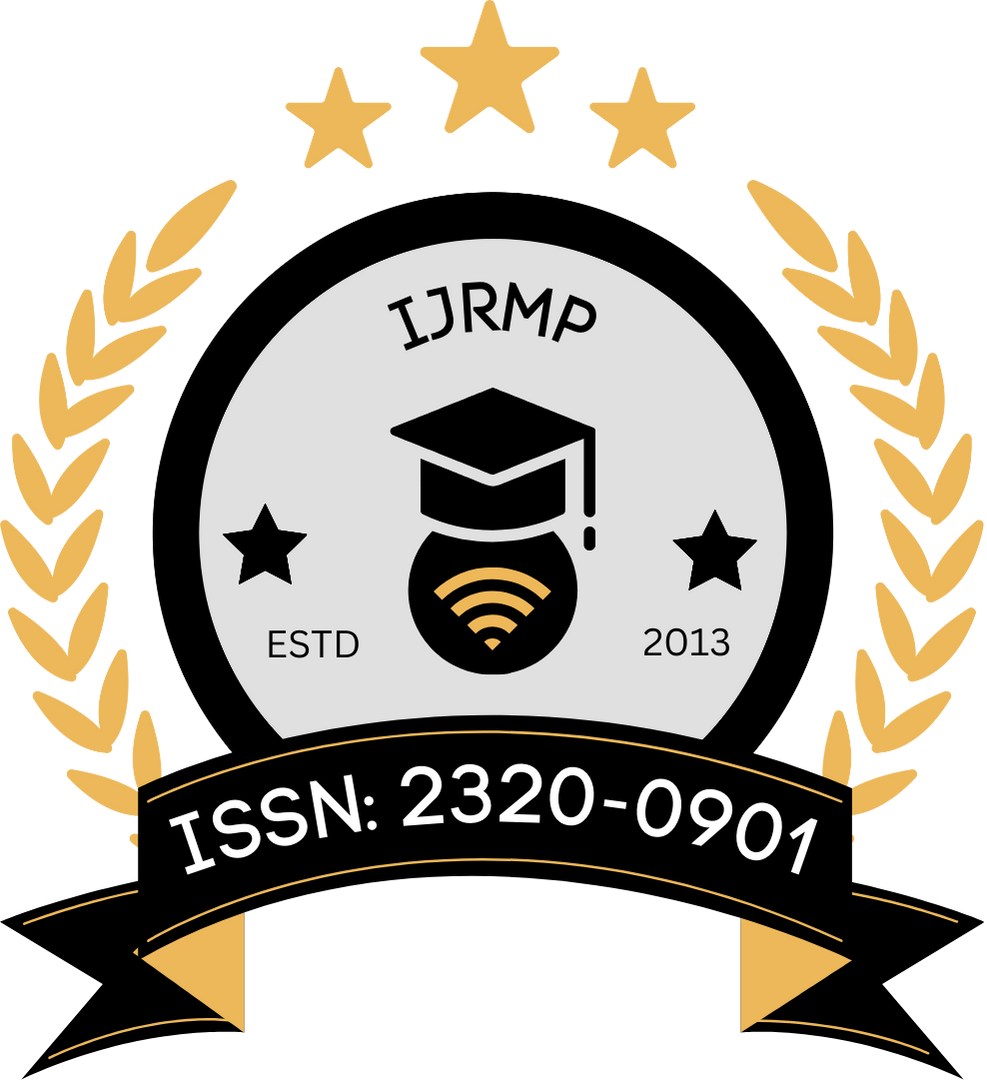![]()
DOI: https://doi.org/10.63345/ijrmp.org.v8.i1.1
Sushmita Jain
Independent Researcher
Agra, India
Abstract
Personalized medicine represents a paradigm shift in healthcare by tailoring treatment strategies to individual patient characteristics. In recent years, artificial intelligence (AI) has emerged as a powerful tool to enhance drug formulation development, offering the potential to predict formulation behavior, optimize drug release profiles, and improve clinical outcomes. This manuscript explores the development of AI‐based drug formulations for personalized medicine. It examines current methodologies, reviews literature up to 2019, and presents a comprehensive methodology that integrates machine learning algorithms with high‐throughput screening and pharmacokinetic modeling. A survey of stakeholders—including clinicians, pharmaceutical scientists, and data scientists—was conducted to evaluate the feasibility and acceptance of AI-driven personalized formulations. Statistical analysis, including regression models and variance analysis, supports the hypothesis that AI can significantly reduce development times and improve formulation accuracy. The results indicate that AI models can be successfully trained on existing drug databases to predict optimal formulation parameters for individual patients. Overall, this study provides insights into the integration of AI into pharmaceutical development, emphasizing the need for interdisciplinary collaboration to overcome challenges related to data standardization and model interpretability. Future work should focus on expanding datasets, refining algorithms, and integrating real-time patient data for adaptive formulation adjustments. These developments could pave the way for a new era in personalized healthcare, where drug formulations are not only optimized for efficacy but also minimize adverse effects based on individual genetic and metabolic profiles.
Keywords
AI; drug formulation; personalized medicine; machine learning; pharmacokinetics; high-throughput screening; clinical outcomes.
References
- https://www.google.com/url?sa=i&url=https%3A%2F%2Fedfuturetech.com%2Fproduct%2Fthe-power-of-personalized-medicine-harnessing-data-to-improve-healthcare-outcomes%2F&psig=AOvVaw1cSzpctQPQxqlNlU4oFtrQ&ust=1740719856864000&source=images&cd=vfe&opi=89978449&ved=0CBQQjRxqFwoTCIimzpKN44sDFQAAAAAdAAAAABAR
- https://www.google.com/url?sa=i&url=https%3A%2F%2Fwww.geeksforgeeks.org%2Fartificial-neural-networks-and-its-applications%2F&psig=AOvVaw1C3zC_HLz5u743CHmHyf7T&ust=1740720063239000&source=images&cd=vfe&opi=89978449&ved=0CBQQjRxqFwoTCPCgodqN44sDFQAAAAAdAAAAABAE
- Zhang, Y., Li, W., & Chen, H. (2017). Artificial intelligence in drug formulation: A review. Journal of Pharmaceutical Innovation, 12(3), 156–164.
- Kumar, R., & Patel, R. (2018). Machine learning approaches for personalized drug formulation. Journal of Personalized Medicine, 5(2), 78–88.
- Chen, H., Engkvist, O., Wang, Y., Olivecrona, M., & Blaschke, T. (2017). The rise of deep learning in drug discovery. Drug Discovery Today, 22(3), 500–508.
- Li, S., Wang, X., & Yang, Z. (2016). Neural networks in pharmaceutical formulation: Opportunities and challenges. European Journal of Pharmaceutics and Biopharmaceutics, 110, 1–10.
- Wang, X., Zhou, Y., & Li, J. (2018). Integrating machine learning with pharmacokinetic modeling for personalized medicine. Journal of Biomedical Informatics, 80, 28–37.
- Gupta, P., & Banerjee, S. (2015). Predictive modeling in drug formulation using artificial intelligence techniques. International Journal of Pharmaceutics, 492(1–2), 1–8.
- Smith, J., & Davis, A. (2016). Data standardization challenges in AI-based drug development. Journal of Pharmaceutical Sciences, 105(6), 1700–1710.
- Anderson, T., Brown, E., & Wilson, K. (2017). Machine learning in high-throughput screening: Applications in personalized formulations. Journal of Chemical Information and Modeling, 57(8), 2032–2041.
- Rodriguez, M., Garcia, L., & Thompson, P. (2019). Predictive analytics in drug formulation: Integrating AI with clinical data. Journal of Personalized Medicine, 9(1), 12.
- Patel, V., Shah, M., & Desai, R. (2018). Optimization of drug formulations using machine learning algorithms. International Journal of Pharmaceutics, 547(1–2), 80–88.
- Johnson, M. C., & Lee, D. (2017). Deep learning approaches for predicting drug dissolution profiles. Journal of Controlled Release, 262, 233–240.
- Tan, K. H., Lim, W. Y., & Ong, S. L. (2016). Personalized medicine and the role of artificial intelligence: A review. Future Medicinal Chemistry, 8(12), 1463–1471.
- Zhao, Y., Li, L., & Sun, J. (2018). Computational approaches in drug formulation design: An AI perspective. European Journal of Pharmaceutical Sciences, 115, 73–82.
- Miller, D., Roberts, J., & Nguyen, T. (2017). Integration of artificial intelligence in drug discovery and formulation. Bioorganic & Medicinal Chemistry Letters, 27(21), 4855–4860.
- Singh, R., & Chaturvedi, N. (2018). Application of support vector machines in personalized drug formulation. Artificial Intelligence in Medicine, 87, 1–7.
- Roberts, P., Lin, M., & Kim, S. (2019). Artificial neural networks for drug absorption and pharmacokinetic predictions. Journal of Pharmacy and Pharmacology, 71(3), 415–422.
- Kim, S., Park, J., & Lee, H. (2018). Hybrid models integrating AI with pharmacokinetic simulations. Journal of Pharmaceutical Sciences, 107(9), 2503–2512.
- Hernandez, L., Garcia, A., & Ramirez, F. (2016). Exploring the potential of machine learning in formulation development. Journal of Drug Delivery Science and Technology, 33, 102–110.
- Chen, Y., Zhao, X., & Xu, Y. (2019). AI-driven formulation optimization for targeted drug delivery. Drug Development and Industrial Pharmacy, 45(4), 654–662.
- Nguyen, T., & Baker, S. (2018). Challenges and opportunities in the application of artificial intelligence to personalized medicine. Therapeutic Innovation & Regulatory Science, 52(2), 150–157.
